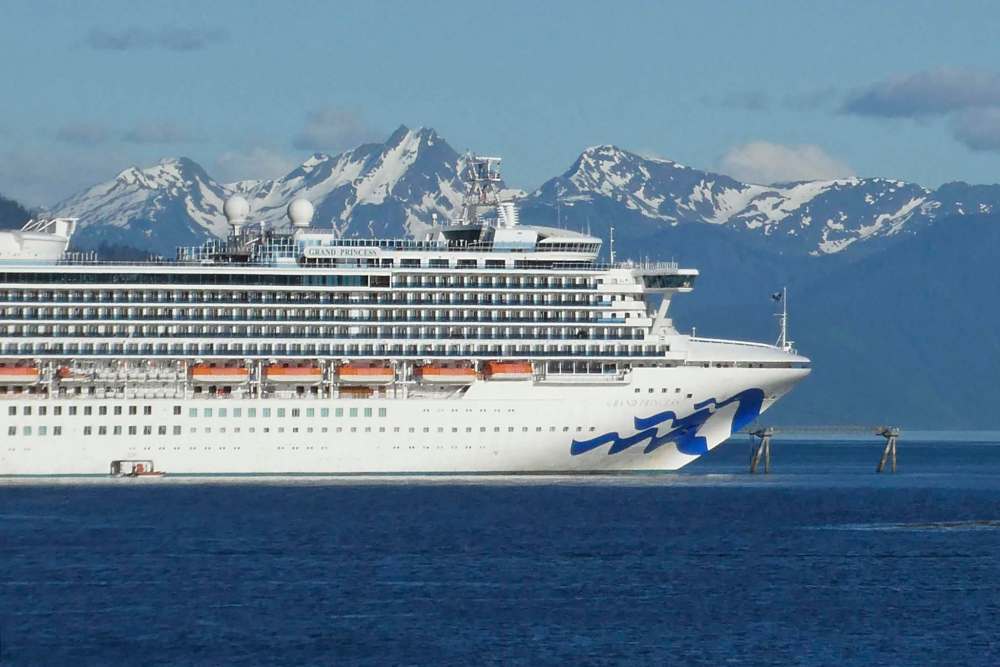Grounded travel industry seeks to book pandemic escape
Read this article for free:
or
Already have an account? Log in here »
To continue reading, please subscribe:
Monthly Digital Subscription
$0 for the first 4 weeks*
- Enjoy unlimited reading on winnipegfreepress.com
- Read the E-Edition, our digital replica newspaper
- Access News Break, our award-winning app
- Play interactive puzzles
*No charge for 4 weeks then price increases to the regular rate of $19.00 plus GST every four weeks. Offer available to new and qualified returning subscribers only. Cancel any time.
Monthly Digital Subscription
$4.75/week*
- Enjoy unlimited reading on winnipegfreepress.com
- Read the E-Edition, our digital replica newspaper
- Access News Break, our award-winning app
- Play interactive puzzles
*Billed as $19 plus GST every four weeks. Cancel any time.
To continue reading, please subscribe:
Add Free Press access to your Brandon Sun subscription for only an additional
$1 for the first 4 weeks*
*Your next subscription payment will increase by $1.00 and you will be charged $16.99 plus GST for four weeks. After four weeks, your payment will increase to $23.99 plus GST every four weeks.
Read unlimited articles for free today:
or
Already have an account? Log in here »
Hey there, time traveller!
This article was published 15/10/2020 (1882 days ago), so information in it may no longer be current.
The early days of the novel coronavirus pandemic hit the travel industry like a gale-force wind, hurling everything into chaos.
Those were the days, Irene Neustaedter remembers, when everything changed hour by hour, when she and other agents were scrambling to get desperate travellers back home.
Then, towards the end of March: nothing. Just nothing. And that nothing stuck around.
“It was like the lights went out,” says Neustaedter, who opened Around the World in 80 Ways travel agency 31 years ago in Winnipeg. “It was silent. From people working in a frenzied state, from emails coming in faster than we could read them, to nothing. Then it stayed that way for a long time…
“It was just sad.”
“It was like the lights went out.” – Travel agency owner Irene Neustaedter
Now, seven months after Canada first braced against COVID-19, agents and others in the tourism industry are struggling to make ends meet, with revenues down by as much as 95 per cent over a normal year.
Without a plan to support the industry and bring travel back responsibly, some fear they may not survive.
“Surely we can figure out a national plan to get people moving again,” says Michael Kroeker, who owns Bonaventure Travel in Winnipeg. “We just need a plan; give us something. It’s really hard for us, we’re really handcuffed at the moment. How am I supposed to operate my business?”
The impact of COVID-19 on the sector has been, in one word, devastating. Yet sometimes, Neustaedter says, she feels forgotten by government and media. Every day, headlines focus on the plight of restaurants and bars, but travel professionals have even fewer way to adapt.
You can’t do curbside delivery for a cruise.

“I don’t think people have fully grasped the calamity of this on this industry,” Kroeker concurs.
There have been some lifelines, including the federal wage subsidy program, but experts predict the travel industry may not fully recover until 2023 — and many businesses won’t be able to hang on until then. Kroeker hopes to see governments develop a targeted plan to help these most deeply impacted sectors.
“I’m thankful for the money they have given us, but they need to be more industry-specific,” he says.
There are some glimmers of hope. In September, Air Canada partnered on a study conducted at Toronto Pearson International Airport, to see if rapid testing of arriving international passengers could help enable loosening of travel restrictions. The tests, recently approved for use in Canada, can return results in 15 minutes but are not as accurate as the molecular PCR tests that take more time to process.
The study’s early results found 99 per cent of travellers who participated returned negative tests. Of the positive results, 80 per cent were detected on the first test, and the rest in a follow-up seven days later. The airline says expanding the program could help safely loosen 14-day quarantine restrictions for incoming travellers.
“I can probably do this for another six months, but it gets really difficult.” – Irene Neustaedter
Earlier this month, WestJet airline and the University of British Columbia announced they would partner on a similar pilot project to be run out of Vancouver International Airport. For that program, which is still being designed, passengers will be tested before boarding.
Many other countries, including Belgium and Iceland, have turned to testing strategies to help reopen their borders for travel and shorten quarantine on arrival. Airports in Europe began offering rapid testing, and saw travel increase as a result. However, restrictions continue to shift as many European countries see a new surge of COVID-19 cases.
Neustaedter and Kroeker hope Canada will explore similar options.

“The government needs to get behind it,” Kroeker says. “That’s what’s probably the most frustrating for our industry. We are hounding them constantly, trying to talk to our MPs. Give me something. Throw me a bone. They don’t seem to have much of a plan.”
There is a light at the end of the tunnel: Kroeker says he hears regularly from clients eager to travel when the time is right. “I’m not giving up any time soon,” he says.
Until then, they’ll just keep searching for ways to hang on. Neustaedter hasn’t paid herself since March, she says.
“I can probably do this for another six months, but it gets really difficult,” she says. “It’s a tough call. You don’t want to pull the plug on everything you’ve worked so hard to build for so many decades, and you know at some point it’s going to come back. But not having an end date is what’s putting so much stress on owners right now.”
melissa.martin@freepress.mb.ca
Our newsroom depends on a growing audience of readers to power our journalism. If you are not a paid reader, please consider becoming a subscriber.
Our newsroom depends on its audience of readers to power our journalism. Thank you for your support.










